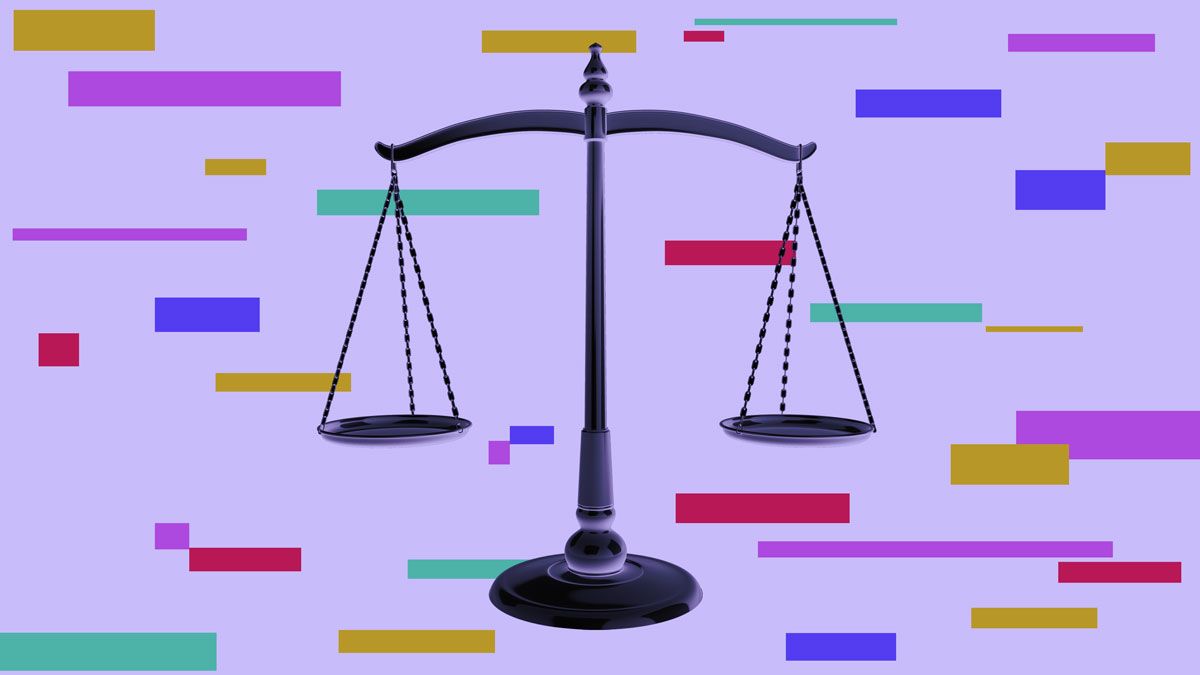“MAN IS BY NATURE A POLITICAL ANIMAL. IT IS IN HIS NATURE TO LIVE IN A STATE. “- Aristotle
Everyone is interested in ethics. We all have our own ideas about what is right and what is wrong and how we can tell the difference. We are all products of particular societies. We do not “make ourselves”. We owe much of what we consider to be our “identity” and “personal opinions” to the community in which we live. This made perfect sense to Aristotle. For Aristotle, the primary function of the state was to enable collectivist human beings to have philosophical discussions and eventually agree on a shared code of ethics. But as soon as we are formed, most of us start to question the society that has made us and do so in a way that seems unique to us. Socrates stressed that it was in fact our duty. The State may decide what is legally right and wrong, but the law and morality are not the same things.
Ethics is complicated because our morality is an odd mixture of received tradition and personal opinion. SOME PHILOSOPHERS HAVE STRESSED THE IMPORTANCE OF THE COMMUNITY AND SEE INDIVIDUAL ETHICS AS DERIVATIVE. OTHERS WILL STRESS THE IMPORTANCE OF THE AUTONOMOUS INDIVIDUAL AND CLAIM THAT SOCIETY IS MERELY A CONVENIENT ARRANGEMENT THAT MUST BE SUBSERVIENT TO THE GOALS AND AMBITIONS OF INDIVIDUALS. Both individualist and communitarian philosophers are reluctant to explain away ethics as no more than “club rules” agreed upon and formalized by members. Both want to legitimize either communal ethics or the need for individual morality by appealing to some kind of “neutral” set of ideals.

It seems very unlikely that any society has ever existed in which individual members have thought the murder of others to be acceptable. Although the odd serial killer does occasionally surface in any society, most of us think of one as an exceptional aberration, or even as “non-human”. There have always been rules about when men may kill other men – usually outsiders as opposed to insiders. Such moral understandings are often codified and regulated by religious and legal taboos of various kinds. Human beings seem reluctant to accept that morality is something invented by themselves and so tend to legitimize moral rules by mythologizing their origins: “The Great White Parrot says stealing is wrong”. The story of ethics is to some extent a description of attempts like these to legitimize morality.
Most people living in Western Christian societies would say that they base their ethical beliefs and behaviour on the ten negative commandments, rather inconveniently carved on stone tablets handed to Moses by God. (Of the ten, only about six are actually ethical.)
This “reciprocity rule” has a long track record and is found in many different religions worldwide. It is a bit like prudent insurance – a sensible way of getting along in the world, even if it’s not quite what Jesus Christ says. (His moral code is much more radical and not at all “reciprocal”. You have to do good deeds to those who have done you no good at all. This is why real Christianity is a hard act to follow.) Is religion where morality comes from? Is being moral simply a matter of obeying divine commands? Independently-minded individuals, like Socrates (in Plato’s Euthyphro), said that there is more to morality than religious obedience. One reason for this is that religious commands vary from one religion to another. Atheists and agnostics would refuse to obey any order from God they believed to be wrong. Religion on its own doesn’t seem to be a complete and satisfactory foundation for human ethical beliefs. What many philosophers search for is a way of justifying moral values which are independent of religious belief.
One alternative answer is to say that morality comes not from external supernatural sources but from ourselves. This raises one of the big questions of all time. Are Human Beings Essentially Good or Essentially Wicked? What Is Human Nature? Is It Even Possible For Us To Define It Or Generalize About A Species Which Includes London Bus Inspectors, Kalahari Bushmen, Italian Tenors, Mahatma Gandhi And Adolf Hitler? Thinking on ethics often begins with assumptions about human nature, either negative or positive. For instance, the Christian notion of “original sin” takes the view that our nature is “fallen” and essentially bad. If this is the case, then it is our social environment and its legal sanctions that force us all to be moral. But the reason most of us don’t torture children is that we think it is wrong, not because we fear a visit from the police. This negative Christian verdict is an example of the “programmed” view of human nature. There is an opposite “Romantic” view of human nature which assumes it to be positively programmed for good. Most People Like To Flatter Themselves That They Choose To Do Good Acts Rather Than Being “Programmed” To Do Them. So, Perhaps Society Has Very Little To Do With The Fundamental Moral Foundations Of Our Characters? It May In Fact Be Responsible For Many Human Evils. Men may kill other men in different uniforms because society encourages them to do so, but their genetic instincts might be to do things like play football and drink beer with each other.

Nowadays, arguments about human nature
centre more and more on genetics. Words like “selfish gene” and “altruistic gene” turn up in popular science articles, but no-one is sure yet what these terms mean or what the full implications of them are. Geneticists use the word “selfish” in an odd sort of way, so that many people now assume erroneously that it is possible to identify “criminality” from DNA. Genetics is an empirical science, but the subsequent arguments and discussions about “human nature” that new genetic “facts” stimulate are full of political myths, ideological assertions and dangerous tosh.
There Are Several Philosophers Who Sincerely Believe That It Will Never Be Possible To Be Truly “Scientific” About Human Nature. You can’t Be Serious! The whole debate is highly speculative and unscientific. Worse, it may be what philosophers call a form of “language bewitchment”. We assume that because there are convenient human terms like “good” and “bad” and “human nature” that there are real physical concrete entities to which these words refer. They very probably don’t exist as “genes” at all. Geneticists prefer words like “potential”, “propensity” and “encourage” rather than “cause” or “determine”. One Gene May Give Someone A Propensity For Vertigo Which Might Encourage Them To Live In Flat Areas. But It Didn’t Stop Me From Becoming A Mountain Climber. The Social And Cultural Influences In My Childhood Were Strong Enough And I Had Will Power. Talk about genes means that the old and eternally unsolveable debate about “nature versus nurture” crops up and drags all the usual political baggage along with it. Those who wish to preserve political power structures are often very keen on genetic determinism.
Some philosophers maintain that DNA and social environment have little or no influence on the sorts of people we become and the moral choices that we make. We are almost wholly autonomous individuals who make our own moral decisions in life and therefore we alone are responsible for all the good and bad things that we do. After all, without free will, we are little more than robots and cannot be moral beings at all. it is commonplace in ethics that “ought implies can”. You can’t even begin to talk about morality unless you assume that human beings have the freedom to choose. It Just Isn’t Sensible To Call Cats “Wicked” When They Kill Mice. But We Do Think That Hitler And Charles ManSon Were Rightly Punished For Their Wicked Behaviour. Their Genetic Make-Up And Early Social Environment Are Not Good Enough Excuses For What They Did. Nevertheless, “commonsense” views like these can be naive or prejudiced. A brutal society can often have a strong negative influence on the formation of someone’s moral character.
Is Society to Blame? Even if DNA has little or no influence on our moral character, perhaps we are still products of our social and cultural environment. At birth, we are blank sheets of paper that are gradually written on by parents, teachers, peer groups, the media and all sorts of other ideological forces. The influence of society on our moral personalities is infinitely stronger than any genetic inheritance and almost totally responsible for everything that makes us both human and moral. This means that it is nonsense to talk about some absurd fiction like “human nature”, as if it has some kind of pre-societal existence. This view is held by many sociologists: There is no such thing As Innate “Human Nature” –only Citizens Internalizing External Moral Codes. It Is Also A View Held By Many Marxists Who Believe We Are Merely Products Of The Ideologies Of The Dominant Class. If I Am Bad (Or Good), Then Society Is To Blame, Right? Human nature might either be wholly plastic, and subsequently given “ethical shape” by social forces, or a programmed bundle of moral software. What puzzles philosophers is the variation in ethical beliefs held by different societies at different times.

Comments